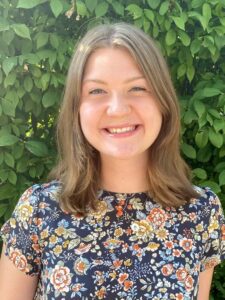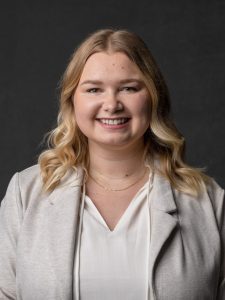The fifteenth AI Connect Webinar, hosted by the U.S. Department of State and the Atlantic Council’s GeoTech Center on July 27, 2023, focused on artificial intelligence (AI) technical developments and AI policy advancements in Eastern Europe and Central Asia.
Following opening remarks by Rich Holliday of the State Department, GeoTech Center Assistant Director Emily Sespico moderated a panel highlighting three AI Connect participant use cases in the region. Lubomir Antoni, Associate Professor at Pavol Jozef Safarik University in Kosice, Slovakia, discussed updates his project, Cordelia, regarding healthcare applications for AI specifically in signal detection for ECG reading. Antoni’s “Cordelia” project trained on hospital data from around the world and is used to auto evaluate ECG recordings, making it possible to quickly visualize brain signals and inform medical diagnoses like the presence of arrhythmia or predict neurological recovery from a coma. The complex heterogeneity of the data used for this project underscored the importance of cross-country collaboration to improve the performance of models across national contexts. Next, Joe Tekli, Associate Professor in the ECE Department, School of Engineering, Lebanese American University (LAU), shared about the InMind Academy, a collaboration between Lebanon’s top eight universities to initiate a free professional development center to train the future talent pool of AI practitioners. InMind Academy provides training to local talent and connects university students with employment opportunities through a robust network of industry partners. Tekli shared on the success of the last cohort of InMind Academy as well as their ongoing projects which include creating digital twins for automotive factory lines and student-run startups using object detection for sports analysis and XR for medical operations. Lastly, Azizjon Azimi, the Founder of Tajikistan’s first AI startup, zypl.ai, discussed Tajikistan’s AI vision which includes realizing their goal of having AI-related economic activities account for 5% of national GDP, rolling out ML modules across all national universities starting in 2026, and creating a special “AI Park” enterprise zone to kickstart the local startup ecosystem. To help realize this vision, Zypl, Azimi’s AI-powered credit scoring platform, has launched an AI Academy to help re-skill local talent and push Tajikistan toward becoming a SaaS export hub. Azimi also highlighted the promise of synthetic data created by neural networks as not only a more robust, shock-resistant, inexpensive alternative to historical data for testing black swan events in models related to fintech or healthcare, but also a much more accessible option for places where data is minimal.
The webinar’s second panel focused on Eastern Europe’s AI ecosystem. GeoTech Center Program Assistant Caroline Thompson moderated the discussion between Alžběta Krausová, Head of the Center for Innovations and Cyberlaw Research (CICeRo) at the Institute of State and Law of the Czech Academy of Sciences; and Courtney Lang, Vice President of Policy, Trust, Data, and Technology at the Information Technology Industry Council (ITI). Krausová began by speaking about the Czech Republic’s AI strategy and its attempts to balance safety with innovation. She emphasized the importance of touting the benefits for industry that come with regulatory compliance; in the long-term, consumers will demand guarantees of safety, and compliance can serve as such a guarantee. Lang discussed another challenge with regulation: keeping up with the pace of innovation. Voluntary frameworks based on risk, she argued, can serve as a temporary medium between unrestricted development and potentially inflexible overregulation. Krausová concluded by noting that Europe must be open to other regulatory perspectives; the EU must pay heed to the practices and frameworks in other parts of the world if it seeks to have a global impact on AI policy. Lang agreed, saying that AI is borderless and global conversation and alignment is critical to creating systems that are fair and safe.

